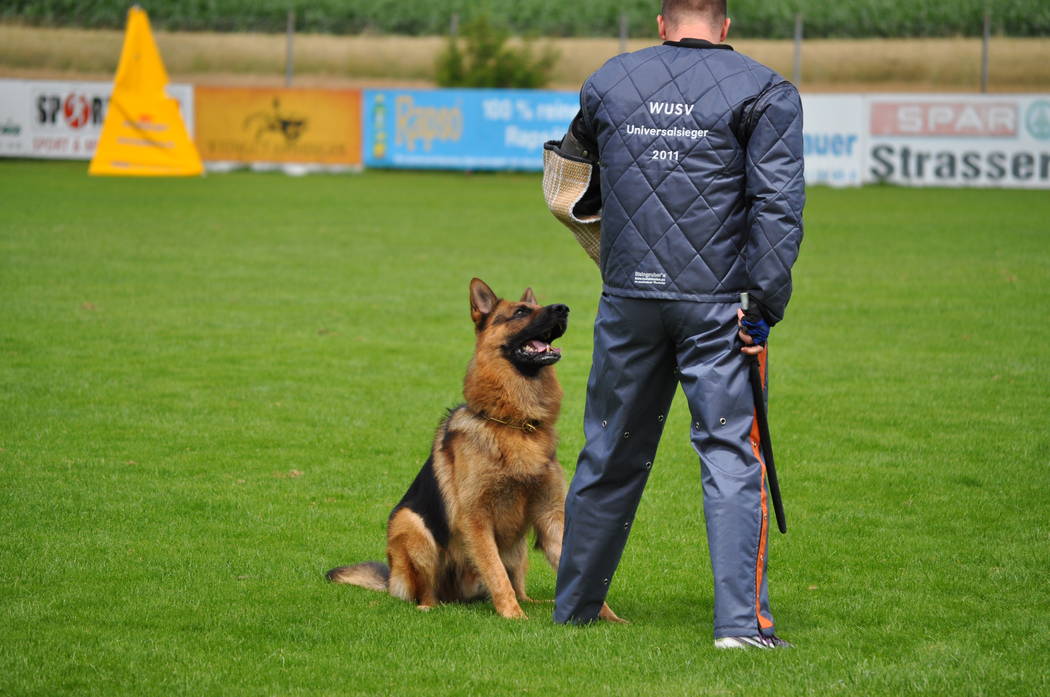Tim Burke: Many benefits to having a pet
A recent agenda item before the Nye County Commission dealt with an appeal regarding a “vicious animal” classification.
There are very few items that are more emotional and gut-wrenching for a commissioner or other official than to decide the fate of someone’s pet.
We have very close relationships with our pets. They become so integrated into our homes that they are quasi members of our families. Pet owners know how much their pets improve their quality of life. But it’s not all about unconditional love—although that provides a wellness boost, too.
On an emotional level, owning a pet can decrease depression, stress and anxiety; health-wise, it can lower your blood pressure, improve your immunity and even decrease your risk of heart attack and stroke. But the positives don’t stop there. Children who grow up in a household with pets benefit in myriad ways, especially in their emotional development.
Pets are also beneficial to children suffering from autism and Attention Deficit Hyperactivity Disorder (ADHD).
Pets properly trained and certified to be a service animal can help someone with a disability lead a more normal life. Unfortunately, some pet owners have taken to calling their pet a service animal when it clearly is not and that has tainted the service animal aspect of pet ownership.
What can be considered a pet covers a wide range of creatures. Pets can be reptiles, rodents, fish, horses, and birds, along with many other different types of animals, but the most common family pets are dogs and cats.
Sixty-eight percent of U.S. households, or about 85 million families, own a pet, according to the 2017-2018 National Pet Owners Survey conducted by the American Pet Products Association (APPA). It is estimated that 48% of American households have dogs and 38% have cats as pets.
Dogs get most of the press when it comes to bad behavior. Because of their size and ability to inflict severe damage and even cause death, dogs that exhibit aggressive behavior must be properly controlled to prevent incidents. So, is it the fault of the dog or the owner when a complaint is filed or something even worse takes place?
That depends.
Factors that influence a dog’s behavior are training, socialization, the household environment, and the most important factor is a dog’s DNA.
Dogs are genetically reprogrammed for certain behavioral traits. Prior to when we decided that dogs should be family pets they were bred for a specific purpose. They had to earn their keep by performing specific tasks. Herding breeds like German Shepherds and Collies were bred to herd, working dogs like the Akitas of ancient Japanese lineage were bred to protect children and to hunt bears.
Schipperkes, also called the “little shepherd,” are best known for guarding the boats that plied the canals between Brussels and Antwerp. Shoemakers and other tradesmen kept them for their rat hunting abilities.
Certain breeds of dogs are still used today for specific purposes such as police and military dogs, hunting and sporting dogs, guard dogs, and search and rescue dogs. It is important to keep the working genetics intact in those breeds so that they can continue to do that work.
Unfortunately, there are dog breeds that were bred for a specific purpose that people want as family pets but genetically aren’t well suited for it.
Therein lies a major part of the problem of why dogs sometimes exhibit bad behavior. It is unfair to take a dog that was genetically bred to do a specific type of work and ask them to become a couch dog and guard the TV remote. They want to be busy doing whatever it is that they have been bred for.
Doing nothing can cause a great deal of anxiety in the dog that can lead to them acting out with bad behavior. Family pet owners generally do not have the training or experience to properly control the dog and redirect its behavior positively.
When picking out a family dog consider your lifestyle and what attributes are important to you. Do you want a lapdog to cuddle with? There are great breeds of dogs for that purpose.
If you want to support a local pet rescue shelter, there are some great dogs waiting for the right home. Getting a dog from a shelter can often be a better choice than a puppy because you will be able to see its behavior in your home. But be prepared to take a dog back that isn’t a fit and pick another dog until you find the right one for your home.
Owning a pet can be very rewarding on many levels and it also comes with the responsibility of making sure it is a good fit for your lifestyle. Choose wisely.
Tim Burke is a businessman, philanthropist, educator and Nye County resident. Burke was the German Shepherd National Breed Warden for the United States from 2006 to 2012 for the international breed organization. The National Breed Warden oversaw the rules and regulations for the international breed standard in the USA. He was twice team captain for the USA at the World Championships. He has hosted or chaired 11 National Championships and competed all over the world. Contact him at timstakenv@gmail.com














